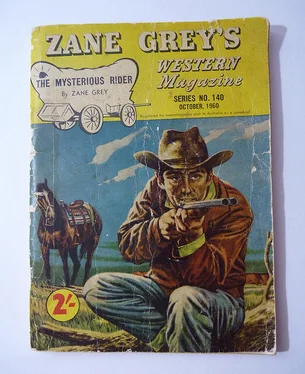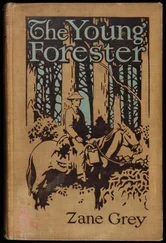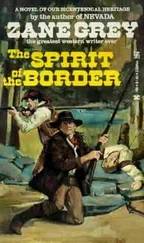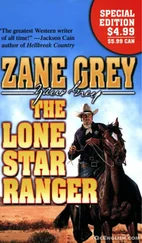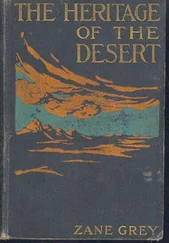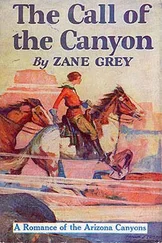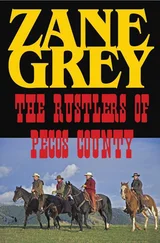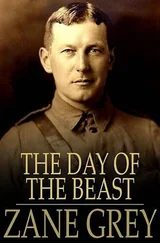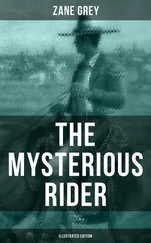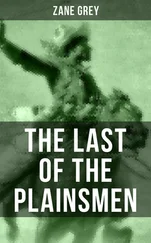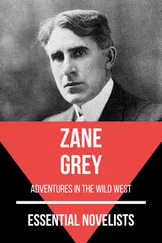He sighed, and a darker shadow, not from flickering fire, overspread his cadaverous face. Eighteen years ago he had driven the woman he loved away from him, out into the world with her baby girl. Never had he rested beside a camp-fire that that old agony did not recur! Jealous fool! Too late he had discovered his fatal blunder; and then had begun a search over Colorado, ending not a hundred miles across the wild mountains from where he brooded that lonely hour—a search ended by news of the massacre of a wagon-train by Indians.
That was Bent Wade's secret.
And no earthly sufferings could have been crueler than his agony and remorse, as through the long years he wandered on and on. The very good that he tried to do seemed to foment evil. The wisdom that grew out of his suffering opened pitfalls for his wandering feet. The wildness of men and the passion of women somehow waited with incredible fatality for that hour when chance led him into their lives. He had toiled, he had given, he had fought, he had sacrificed, he had killed, he had endured for the human nature which in his savage youth he had betrayed. Yet out of his supreme and endless striving to undo, to make reparation, to give his life, to find God, had come, it seemed to Wade in his abasement, only a driving torment.
But though his thought and emotion fluctuated, varying, wandering, his memory held a fixed and changeless picture of a woman, fair and sweet, with eyes of nameless blue, and face as white as a flower.
“Baby would have been—let's see—'most nineteen years old now—if she'd lived,” he said. “A big girl, I reckon, like her mother.... Strange how, as I grow older, I remember better!”
The night wind moaned through the spruces; dark clouds scudded across the sky, blotting out the bright stars; a steady, low roar of water came from the outlet of the lake. The camp-fire flickered and burned out, so that no sparks blew into the blackness, and the red embers glowed and paled and crackled. Wade at length got up and made ready for bed. He threw back tarpaulin and blankets, and laid his rifle alongside where he could cover it. His coat served for a pillow and he put the Colt's gun under that; then pulling off his boots, he slipped into bed, dressed as he was, and, like all men in the open, at once fell asleep.
For Wade, and for countless men like him, who for many years had roamed the West, this sleeping alone in wild places held both charm and peril. But the fascination of it was only a vague realization, and the danger was laughed at.
Over Bent Wade's quiet form the shadows played, the spruce boughs waved, the piny needles rustled down, the wind moaned louder as the night advanced. By and by the horses rested from their grazing; the insects ceased to hum; and the continuous roar of water dominated the solitude. If wild animals passed Wade's camp they gave it a wide berth.
* * * * *
Sunrise found Wade on the trail, climbing high up above the lake, making for the pass over the range. He walked, leading his horses up a zigzag trail that bore the tracks of recent travelers. Although this country was sparsely settled, yet there were men always riding from camp to camp or from one valley town to another. Wade never tarried on a well-trodden trail.
As he climbed higher the spruce-trees grew smaller, no longer forming a green aisle before him, and at length they became dwarfed and stunted, and at last failed altogether. Soon he was above timber-line and out upon a flat-topped mountain range, where in both directions the land rolled and dipped, free of tree or shrub, colorful with grass and flowers. The elevation exceeded eleven thousand feet. A whipping wind swept across the plain-land. The sun was pale-bright in the east, slowly being obscured by gray clouds. Snow began to fall, first in scudding, scanty flakes, but increasing until the air was full of a great, fleecy swirl. Wade rode along the rim of a mountain wall, watching a beautiful snow-storm falling into the brown gulf beneath him. Once as he headed round a break he caught sight of mountain-sheep cuddled under a protecting shelf. The snow-squall blew away, like a receding wall, leaving grass and flowers wet. As the dark clouds parted, the sun shone warmer out of the blue. Gray peaks, with patches of white, stood up above their black-timbered slopes.
Wade soon crossed the flat-topped pass over the range and faced a descent, rocky and bare at first, but yielding gradually to the encroachment of green. He left the cold winds and bleak trails above him. In an hour, when he was half down the slope, the forest had become warm and dry, fragrant and still. At length he rode out upon the brow of a last wooded bench above a grassy valley, where a bright, winding stream gleamed in the sun. While the horses rested Wade looked about him. Nature never tired him. If he had any peace it emanated from the silent places, the solemn hills, the flowers and animals of the wild and lonely land.
A few straggling pines shaded this last low hill above the valley. Grass grew luxuriantly there in the open, but not under the trees, where the brown needle-mats jealously obstructed the green. Clusters of columbines waved their graceful, sweet, pale-blue flowers that Wade felt a joy in seeing. He loved flowers—columbines, the glory of Colorado, came first, and next the many-hued purple asters, and then the flaunting spikes of paint-brush, and after them the nameless and numberless wild flowers that decked the mountain meadows and colored the grass of the aspen groves and peeped out of the edge of snow fields.
“Strange how it seems good to live—when I look at a columbine—or watch a beaver at his work—or listen to the bugle of an elk!” mused Bent Wade. He wondered why, with all his life behind him, he could still find comfort in these things.
Then he rode on his way. The grassy valley, with its winding stream, slowly descended and widened, and left foothill and mountain far behind. Far across a wide plain rose another range, black and bold against the blue. In the afternoon Wade reached Elgeria, a small hamlet, but important by reason of its being on the main stage line, and because here miners and cattlemen bought supplies. It had one street, so wide it appeared to be a square, on which faced a line of bold board houses with high, flat fronts. Wade rode to the inn where the stagecoaches made headquarters. It suited him to feed and rest his horses there, and partake of a meal himself, before resuming his journey.
The proprietor was a stout, pleasant-faced little woman, loquacious and amiable, glad to see a stranger for his own sake rather than from considerations of possible profit. Though Wade had never before visited Elgeria, he soon knew all about the town, and the miners up in the hills, and the only happenings of moment—the arrival and departure of stages.
“Prosperous place,” remarked Wade. “I saw that. An' it ought to be growin'.”
“Not so prosperous fer me as it uster be,” replied the lady. “We did well when my husband was alive, before our competitor come to town. He runs a hotel where miners can drink an' gamble. I don't.... But I reckon I've no cause to complain. I live.”
“Who runs the other hotel?”
“Man named Smith. Reckon thet's not his real name. I've had people here who—but it ain't no matter.”
“Men change their names,” replied Wade.
“Stranger, air you packin' through or goin' to stay?”
“On my way to White Slides Ranch, where I'm goin' to work for Belllounds. Do you know him?”
“Know Belllounds? Me? Wal, he's the best friend I ever had when I was at Kremmlin'. I lived there several years. My husband had stock there. In fact, Bill started us in the cattle business. But we got out of there an' come here, where Bob died, an' I've been stuck ever since.”
Читать дальше
